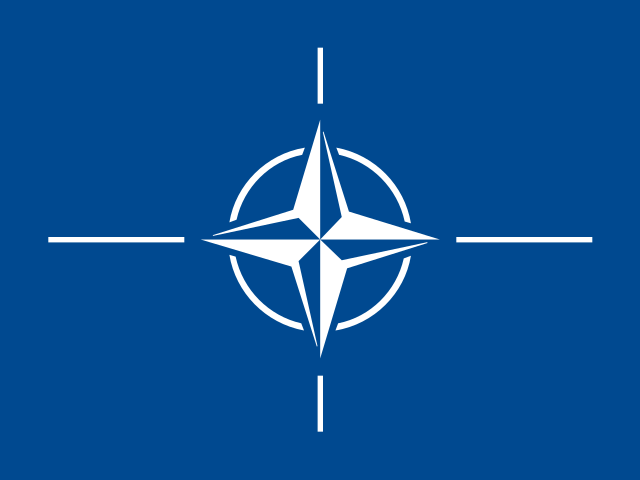Germany and UK Sign Defence Trinity House Agreement for NATO-First Defense
On October 23, 2024, UK Secretary of Defense John Healey and German Defense Minister Boris Pistorius signed a landmark defense cooperation agreement, known as the Trinity House Agreement.

On October 23, 2024, UK Secretary of Defense John Healey and German Defense Minister Boris Pistorius signed a landmark defense cooperation agreement, known as the Trinity House Agreement, marking a new era in the UK-Germany military relationship. This agreement, signed just four months after preliminary discussions, formalizes defense cooperation across domains and signals a profound shift in Europe’s approach to security.
Rationale and Goals of the Agreement
During the signing, Healey emphasized the "NATO-first" approach guiding UK defense policy, rooted in a shared commitment with Germany to bolster European security amid an increasingly complex threat environment. This cooperation reflects a growing recognition that European allies must assume more responsibility for regional defense, especially in response to Russian aggression, the war in Ukraine, and Middle Eastern conflicts.
Historically, the UK and Germany have collaborated intermittently on security efforts, such as joint operations in Kosovo and Afghanistan, but this has been largely ad hoc. Despite both nations ranking as Europe’s top defense spenders and being the two largest contributors of military aid to Ukraine, systematic and deep bilateral military cooperation has been lacking. The Trinity House Agreement thus aims to turn sporadic collaboration into sustained and structured defense alignment.

Großwald Curated: Key Objectives in Defence
The agreement establishes a framework for long-term defence cooperation between the UK and Germany, aiming to strengthen both NATO and broader European defense. Its stated goals include:
- Enhancing Euro-Atlantic Security: Both nations recognize that European stability is essential to their security and to NATO’s overarching mission.
- Defense Industry Collaboration: Germany and the UK will support mutual defense industries by fostering joint research and technology initiatives. This involves developing cooperative equipment programs that leverage both countries' industrial strengths, fostering a resilient defense supply chain across Europe.
- Bilateral Military Interoperability: A core component of the agreement is to advance interoperability across all military domains (land, sea, air, space, and cyber), with a specific focus on aligning NATO standards.
- Supporting NATO and UN Initiatives: Both countries pledge to reinforce collective defense measures within NATO and to support cooperative security efforts through the United Nations.
- Military Support for Allies: Acknowledging shared defense obligations, Germany and the UK plan to coordinate support for allies and partners, particularly those facing territorial threats, which serves as a subtle response to Russia's ongoing assertive military posture.
Immediate Strategic Initiatives
The agreement’s immediate actions underscore a shared focus on enhancing NATO’s eastern flank and reinforcing capabilities crucial to regional stability:
- Army Integration and Training: UK and German forces will train and exercise jointly, particularly on NATO’s eastern borders. This move enhances both countries' ability to respond swiftly to regional threats and aligns their land forces with NATO’s evolving deterrence strategies.
- Naval and Air Cooperation in the North Atlantic: German P8 surveillance aircraft will operate from the UK’s Lossiemouth base in Scotland, increasing maritime security in the North Atlantic. This collaboration aims to counter submarine threats and protect critical North Atlantic routes.
- Support for Ukraine and Joint Capabilities: Through the “capability coalitions” for Ukraine, Germany and the UK are coordinating aid delivery and new systems to enhance Ukraine's resilience, signaling long-term support beyond current conflicts.
Additionally, Germany’s fleet of Sea King helicopters will be equipped with advanced missile systems in the UK, an indication of the countries’ intent to achieve rapid interoperability improvements. This approach represents a clear signal to adversaries that the UK and Germany are committed to deterrence through preparedness and military alignment.
Future-Focused Collaboration: From Deep Strike to Undersea Defense
One of the defining elements of the Trinity House Agreement is its dual focus on current and future threats, particularly through cutting-edge technology and industrial collaboration:
- Deep Strike and Drones: The UK and Germany will jointly develop a deep strike capability, enhancing their capacity for precision, long-range engagements. Parallel efforts will explore next-generation drones designed to integrate seamlessly with tanks, aircraft, and ships, forming an adaptable network that responds to diverse battlefield challenges.
- Protecting Undersea Cables: With undersea infrastructure emerging as a potential vulnerability, particularly in light of recent sabotage fears, both nations will work together on solutions to secure critical North Sea cables. This collaboration signals a commitment to protect communication lifelines vital to both civilian and military operations.
- AI and Emerging Technologies: The UK and Germany’s investment in AI capabilities will be bolstered by a new £350 million investment from Helsing, focusing on AI applications in defense. This commitment aligns with NATO’s broader ambitions to integrate AI-driven tools, particularly in decision-making and battlefield management.
Industrial Partnerships to Bolster Defense Self-Sufficiency
The agreement also aims to reinvigorate the UK’s defense industrial base with new investment from German firms, highlighting an economic dimension to the partnership:
- Rheinmetall's New Gun Barrel Factory: German defense giant Rheinmetall has announced plans to establish a gun barrel factory in the UK, creating 400 jobs and marking the return of this key manufacturing capability to British soil after a decade-long gap. With nearly £500 million in economic impact, this factory not only enhances the UK’s self-sufficiency in producing critical components but also positions the UK as a supplier for European allies.
- Artillery to AI Investments: In a broader sense, the Trinity House Agreement paves the way for joint production, innovation, and defense equipment standardization that serves both NATO and EU partners, signaling a shift toward more Europe-centric defense production.
A Broader NATO Commitment and a Signal to Adversaries
At its core, the Trinity House Agreement is a manifestation of what Healey described as a "NATO-first defense strategy" for the UK. The pact represents a deeper commitment to NATO’s collective security framework and a clear message to potential adversaries that European powers are proactively strengthening regional defense. The rapid execution of this agreement — within just four months after the UK’s new government took office — underscores an urgency to counter current threats while laying the groundwork for future resilience.

Großwald Curated: Structural Framework for Implementation
The agreement structures cooperation through multiple coordinating bodies:
- Defense Ministerial Council: Serving as the primary oversight body, this council consists of the UK Secretary of Defense and the German Federal Minister of Defense, meeting regularly to set long-term priorities and resolve any issues.
- Military Steering Committee (MSC): Reporting to the Ministerial Council, the MSC will guide military interoperability and doctrinal alignment, facilitating high-level exchanges across their armed forces.
- Ministerial Group on Equipment and Capability Cooperation (MECC): This group will focus on defense industry and military capability alignment, aiming to enhance industrial competitiveness and minimize national constraints.
- Defense Policy Dialogue: Dedicated to policy exchange and strategic horizon-scanning, the Dialogue will include a sub-group on nuclear issues, fostering transparency and cooperative security planning in the nuclear domain.
Strategic Implications for NATO and European Defense
The UK-Germany Defense Cooperation Agreement emphasizes NATO as the foundation of European defense collaboration. As two of NATO's most influential members, the UK and Germany bring critical support to the Alliance's resilience against diverse threats, from Russian militarism to cyber vulnerabilities. Their deepened cooperation bolsters NATO’s capacity for rapid, unified response and reinforces the Alliance’s deterrent posture.
This bilateral agreement also aligns with NATO's strategy of enhanced forward presence and collective defense, signaling to potential adversaries that Germany and the UK stand united in safeguarding NATO's shared security objectives. Furthermore, this agreement complements the UK's recent defense frameworks with Norway and Sweden, underscoring the UK's strategy to strengthen northern and central European security networks and build resilient regional alliances.
Anchored in a formal structure, UK-German defense ties now stand as a central pillar of European security. By setting an example, the Trinity House Agreement may inspire similar frameworks among European nations, solidifying Europe’s stance against shared threats and influencing NATO’s evolution as the security landscape continues to shift.
Conclusion: A Step Forward in UK-Germany Defense Relations
The Trinity House Agreement represents a major strategic commitment to European defense integration. Through targeted investments in interoperability, industrial cooperation, and technological advancement, the UK and Germany are jointly advancing a defense model that strengthens European leadership within NATO’s collective security framework.
Sources: Bundesministerium der Verteidigung, UK Ministry of Defence




